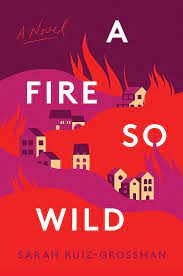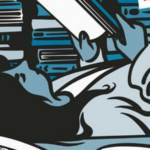Just weeks after I moved from my hometown of New York City to the California Bay Area in fall 2017, I woke up to smoky skies. On my way to work at HuffPost’s office in downtown San Francisco, I passed people with scarves clenched over their mouths, N95 masks on, years before the pandemic would make this a common sight. At my desk, my throat scratching oddly, a headache blossoming between my eyes, I saw the latest reports come in: a historic blaze had torn through Sonoma and Napa, leaving fields of ash where neighborhoods once deemed at low risk for fire used to stand. I got into my car and drove north, toward a thickening cloud of ash.
As I pulled into the town of Santa Rosa, two-story houses and pristine lawns slowly turned dusty and gray, trees went from leafy green to spindly, black and bare. And then: a field of black ash, as far as the eye could see. The only things that were recognizable: hollowed-out car frames, brick chimneys standing like soldiers at attention over a massacre. A few people walked around, stepping gingerly through still-hot metal. They had fled the fire in the night and come back to check on their houses, finding everything gone. One young woman called out for her cat. Another told me: “Everything that we had is charcoal.”
I thanked them for sharing their stories with me, and on the drive home, I cried. I sent five hundred words to my editor, feeling inadequate, knowing I had witnessed just a fraction of the grief survivors now had to live with for the rest of their lives. And this was only one fire, in one year, in an increasingly expanding season of worsening heat, fires, storms and floods.
It was a brutal introduction to the deepening climate crisis I would cover over the years for HuffPost, tracing the worsening emergency in a state I would come to love and call home. It would also plant the seeds of what would later become my first novel, A Fire So Wild.
In late 2020, after covering the aftermath of the state’s deadliest fire in Paradise in 2018, the state’s largest fire in Mendocino in 2020, speaking to survivors caught between the rock of the housing crisis and the hard place of our boiling planet, a story started to take shape: Three families in Berkeley. One in a house up in the hills. Another in affordable housing down in the flats. And a couple living in their van by the shore. A wildfire slowly growing in the distance.
I wrote A Fire So Wild, my new novel, as a love letter to California and a questioning of how we build meaningful lives in a world on fire. And I am far from the only author reckoning with how our human-made, greed-fueled climate crisis is shaping our lives.
Here are five gut-wrenching books that will haunt and transform your perspective on our planet:

Eleanor Catton, Birnam Wood
In this thriller, a young crew of guerrilla gardeners are trying to build an anti-capitalist community when their passionate leader Mira meets a billionaire ready to finance the operation. We follow Mira and the increasingly sketchy billionaire, as well as Mira’s friends who start to doubt her motives, as they all get entangled on a plot of land that is hiding something in its soil.

C Pam Zhang, Land of Milk and Honey
The world’s crops are failing and rich, delicious food is becoming a rarity. An up-and-coming chef is offered a position in a colony of the wealthy, with ingredients she hasn’t come by in years, in an opportunity that feels impossible to pass up. As she becomes embedded with the elite family running the place, she is forced to face the limits of her ethics in a degenerating world.

Charlotte McConaghy, Once There Were Wolves
In this tense mystery, a woman arrives in rural Scotland on an important environmental mission to repopulate its land with long-gone wolves. As her team works to convince the locals that the wolves are not a danger to them, and in fact will help their land thrive, a farmer is killed. Tensions mount to a fever pitch as she tries to figure out what happened, and save the wolves.

Rumaan Alam, Leave The World Behind
In this short, haunting story, a family heads out of town to spend a relaxing weekend at a beach house, when a widespread blackout engulfs the city and the home’s owners arrive at the door asking to come in. As the mystery of what is happening in the broader world expands, the two families have to face their existential fears, and how much we can trust one another in a crisis.

Octavia Butler, Parable of the Sower
In this classic of the apocalypse genre, a young climate refugee journeys north in California, fleeing the dangers of a deeply unequal society falling apart. Using her powers to feel others’ pain, she introduces people to a new religion, Earthseed, in which God is change.
***


















